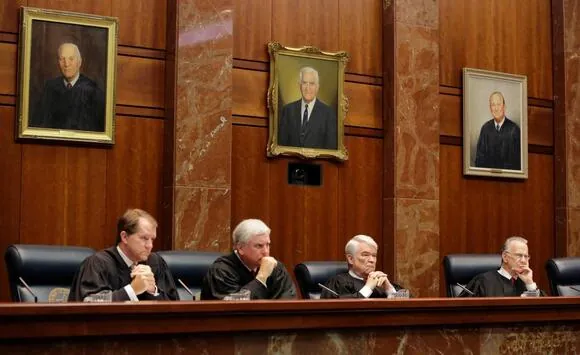The highest civil court in Texas is concerned about the state’s insufficient number of lawyers to cater to the legal requirements of a rapidly expanding population. This shortage is creating a “justice gap” that is disproportionately affecting vulnerable Texans who are legally entitled to legal assistance.
The highest civil court of the state emphasizes that justice should be a right for everyone, not just a privilege for the wealthy. To achieve this objective, they are taking steps to enhance accessibility by enabling more legal personnel to aid low-income people residing in Texas.
On Tuesday, the Texas Supreme Court unveiled preliminary regulations that would permit licensed paraprofessionals and court-access assistants to offer certain legal services that were previously only available to licensed attorneys.
Chief Justice Nathan L. Hecht emphasized the importance of providing civil legal services to all individuals, regardless of their economic status, as it is a crucial aspect of maintaining the integrity of our judicial system. Denying justice to people with limited means who cannot afford legal representation is unacceptable, he stated.
According to statistics provided by the Legal Services Corporation, the Court has raised concerns over the increasing number of unmet civil legal needs. Shockingly, 92% of low-income Americans are unable to access the legal assistance they require. As a result, many are left with no choice but to represent themselves in court, without the guidance of an attorney.
Justice Brett Busby emphasized the significance of addressing the genuine and crucial civil legal requirements of individuals, such as safeguarding them from domestic violence, providing access to housing and food, and granting veterans’ benefits. He further stressed the need to implement inventive and constructive structural changes, like those mentioned in the order, to bridge the existing gap and ensure that justice is accessible to everyone, not just a privilege reserved for the financially stable.
In June, the Texas Access to Justice Foundation announced its Moonshot Grant Award which aims to expand legal services to underserved communities. Several volunteer legal groups and advocacy organizations, including Disability Rights Texas, Legal Aid of Northwest Texas, Lone Star Legal Aid, Texas Legal Services Center, and Texas RioGrande Legal Aid (TRLA) will benefit from this initiative. The latest move is a complement to the efforts of these organizations towards providing legal assistance to those who need it the most.
According to TRLA, rural counties are experiencing significant gaps in legal representation. Shockingly, 17 counties only have access to a single lawyer, while six have no legal representation whatsoever. To address these unmet legal needs, the Moonshot Grant will connect individuals with trained lay advocates who can provide assistance in a variety of fields, such as consumer debt, credit repair, estate planning, housing, public benefits, and special education.
Nicole Rivera Maesse, the Deputy Director of TRLA, expressed her excitement about partnering with DRTx and other legal aid providers in Texas for a critical initiative. She stated that the initiative aims to expand legal services to the most marginalized communities and educate and empower those on the frontlines of these communities. This will not only pave the path towards closing the justice gap but also benefit the communities in need.
The proposed rules presented by the Court are now open for public comments until November 1st. These changes are anticipated to be implemented beginning December 1st.
Read More: ‘Torturous for everybody’: Texas jail chief blames lawmakers for high temperatures
